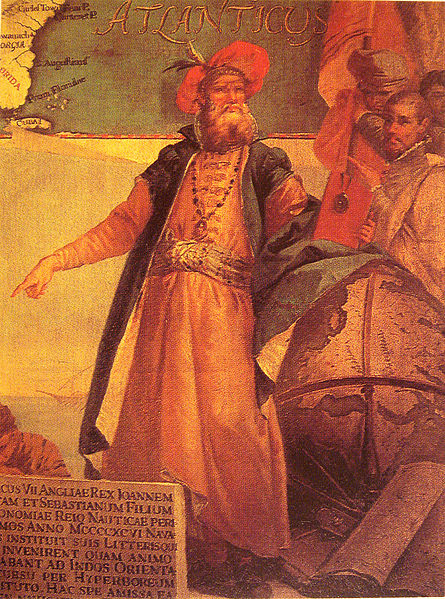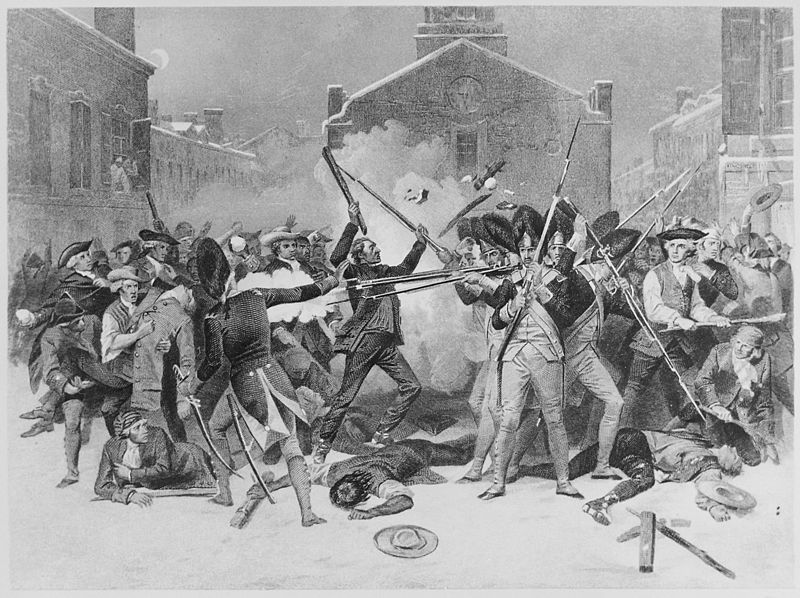This article chronicles pivotal events that transpired on March 5th, offering a journey through time that highlights milestones in exploration, innovation, and global history.
It delves into moments that have significantly influenced scientific, technological, political, and cultural landscapes.
From early advancements and exploratory ventures to crucial geopolitical shifts and reflections of cultural sentiments, this overview captures the essence of human progress and the complexities of the world stage on this day across different eras.
March 5th Events in History
363 – Roman Emperor Julian moves from Antioch with an army of 90,000 to attack the Sassanid Empire, in a campaign that would bring his own death
In 363, Roman Emperor Julian embarked on an ambitious campaign against the Sassanid Empire, one of Rome’s principal rivals. Leaving Antioch with a formidable force of 90,000, Julian sought to secure the eastern provinces and possibly emulate the conquests of Alexander the Great.
Also Read: March 4 – On this Day in History
Despite initial successes, the campaign met with disaster. Julian’s forces faced logistical difficulties, and in a skirmish, Julian was mortally wounded. His death marked a significant moment in Roman history, leading to a brief restoration of pagan rites before the empire’s eventual Christianization.
1046 – Nasir Khusraw begins the seven-year Middle Eastern journey which he would later describe in his book “Safarnama”
Nasir Khusraw, a Persian poet, philosopher, and traveler, began a seven-year journey across the Islamic world in 1046. His travels took him through many regions, including present-day Iran, Egypt, and the Arabian Peninsula.
Khusraw’s detailed observations and vivid descriptions of the places he visited and the cultures he encountered were compiled into his book “Safarnama,” which offers valuable insights into the medieval Islamic world.
His work not only contributes to our understanding of the geography and cultures of the time but also reflects the rich tradition of travel writing in Persian literature.

1496 – King Henry VII of England issues letters patent to John Cabot and his sons, authorizing them to explore unknown territories
On March 5, 1496, King Henry VII of England granted letters patent to John Cabot, an Italian navigator and explorer, and his sons. This document authorized them to explore “unknown territories” on behalf of the English crown, leading to the later discovery of parts of North America.
Also Read: March 6th Events in History
Though little is known about the specifics of Cabot’s voyages, it is believed that in 1497 he landed on the coast of what is now Canada, claiming it for England. This marked one of the earliest European attempts to explore and claim territories in the New World, setting the stage for future English colonization.
1616 – Nicolaus Copernicus’s book, “De revolutionibus orbium coelestium”, is added to the Catholic Church’s Index of Forbidden Books 73 years after it was first published
In 1616, “De Revolutionibus Orbium Coelestium” (“On the Revolutions of the Celestial Spheres”) by Nicolaus Copernicus was placed on the Catholic Church’s Index of Forbidden Books. Copernicus’s work, which argued that the Earth orbited the Sun, challenged the geocentric view of the universe that had prevailed for centuries.
This inclusion in the Index was a part of the Church’s response to ideas it deemed heretical, reflecting the tensions between emerging scientific discoveries and established religious doctrines. Despite the Church’s prohibition, Copernicus’s heliocentric theory eventually became foundational to modern astronomy.
1770 – The Boston Massacre occurs, a pivotal event leading up to the American Revolution
On March 5, 1770, a confrontation between British soldiers and American colonists in Boston, Massachusetts, escalated into a deadly incident known as the Boston Massacre. Tensions had been rising in the colonies over British taxation without representation and other grievances.
That evening, a crowd confronted a small group of soldiers who then fired into the gathering, killing five colonists. This event radicalized public opinion in the colonies, fueling discontent and contributing significantly to the American Revolutionary War’s outbreak. The Boston Massacre remains a symbol of colonial resistance and the struggle for American independence.

1824 – First Anglo-Burmese War: The British officially declare war on Burma
The First Anglo-Burmese War (1824–1826) was the first of three conflicts between the British Empire and the Burmese Empire that in the 19th century. The war began on March 5, 1824, when the British, seeking to expand their Asian empire and secure their borders in India, officially declared war on Burma.
This conflict was sparked by disputes over territories in what is now Northeast India and the desire of the British East India Company to control trade routes and resources. It was a costly war for both sides, leading to high casualties and economic strain.
The war concluded with the Treaty of Yandabo in 1826, where Burma ceded significant territories to the British, marking the start of British colonial presence in Burma.
1836 – Samuel Colt patents the first production-model revolver, the .34-caliber
On March 5, 1836, Samuel Colt received a U.S. patent for the Colt revolver, a firearm that featured a revolving cylinder containing five or six bullets. This innovation allowed the shooter to fire multiple rounds without reloading after every shot, dramatically changing the dynamics of personal and military combat.
The Colt revolver’s design was pivotal in the westward expansion of the United States, as it became an iconic symbol of the American frontier. Colt’s manufacturing techniques also contributed to the onset of the Industrial Revolution in the U.S.
1860 – Parma, Tuscany, Modena, and Romagna vote in referendums to join the Kingdom of Sardinia
In the process known as the Risorgimento, which was the unification of Italy, several duchies and regions voted in referendums to join the Kingdom of Sardinia in 1860.
This was a significant step towards the consolidation of the Italian peninsula under a single sovereign state, a goal achieved in 1861 with the proclamation of the Kingdom of Italy.
These referendums were a result of diplomatic and military efforts, most notably by figures such as Giuseppe Garibaldi and Count Cavour, who worked towards the expulsion of foreign powers and the unification of Italy.
1872 – George Westinghouse patents the air brake
On March 5, 1872, George Westinghouse, an American inventor, received a patent for the air brake.
This invention significantly improved the safety and efficiency of railroad operations, allowing for longer and faster trains by providing a reliable means of stopping trains by using compressed air to apply the brakes on each carriage simultaneously.
Before the air brake, brakes were applied manually by brakemen in a dangerous and less effective process. Westinghouse’s air brake revolutionized rail transport and played a crucial role in the development of the railroad industry worldwide.
1912 – Italian forces are the first to use airships for military purposes, using them for reconnaissance behind Turkish lines
In 1912, during the Italo-Turkish War, the Italian military became the first to use airships in combat, deploying them for reconnaissance missions behind Turkish lines.
This conflict is noted for several technological firsts in military history, including the first use of wireless telegraphy in combat and the first military use of aircraft.
The Italian use of airships marked a significant moment in the evolution of aerial warfare, demonstrating the potential of air power in military strategy. Airships provided a new means of gathering intelligence and directing ground forces, a tactic that would evolve with the advent of more advanced aircraft in the years to follow.
1933 – Great Depression: President Franklin D. Roosevelt declares a “bank holiday”, closing all U.S. banks and freezing all financial transactions
In response to the escalating banking crisis of the Great Depression, President Franklin D. Roosevelt, just after taking office, declared a nationwide “bank holiday” on March 5, 1933. This action temporarily closed all banks in the United States to prevent mass withdrawals and stabilize the banking system.
The “holiday” lasted until Congress passed the Emergency Banking Act, which provided for the reopening of the banks once they were deemed financially secure.
This decisive move was part of Roosevelt’s broader New Deal efforts to address the economic devastation of the Great Depression, ultimately helping to restore public confidence in the U.S. financial system.

1946 – Winston Churchill coins the term “Iron Curtain” in his speech at Westminster College, Missouri
On March 5, 1946, Winston Churchill delivered a speech at Westminster College in Fulton, Missouri, where he famously declared that an “Iron Curtain” had descended across Europe, marking the division between Western democracies and Eastern communist countries controlled by the Soviet Union.
This speech is considered one of the opening volleys of the Cold War, articulating the ideological divide that would dominate global politics for the next several decades.
Churchill’s “Iron Curtain” speech underscored the growing tensions between the Soviet Union and the West, significantly influencing the formation of NATO and the strategy of containment towards communism.
1953 – Joseph Stalin’s death is announced by the Soviet Union
On March 5, 1953, the Soviet Union announced the death of Joseph Stalin, its long-time leader who had transformed the country into a superpower through ruthless policies and a strict regime that included political repression, forced labor camps, and famines.
Stalin’s death marked the end of an era and the beginning of a power struggle within the Soviet Union, eventually leading to Nikita Khrushchev’s rise and a period known as the Thaw, characterized by a slight easing of political repression and censorship.
Stalin’s legacy remains controversial, reflecting the complex interplay of industrialization, political control, and human rights abuses under his rule.
1960 – Cuban photographer Alberto Korda takes his iconic photograph of Marxist revolutionary Che Guevara
On March 5, 1960, Cuban photographer Alberto Korda captured one of the most iconic images of the 20th century – a photograph of Marxist revolutionary Che Guevara. Taken at a memorial service in Havana, the image, known as “Guerrillero Heroico,” shows Guevara in a beret looking into the distance.
The photograph became a symbol of rebellion and revolutionary zeal worldwide, embodying the spirit of the 1960s counterculture and anti-imperialist movements. Korda’s image of Guevara has been reproduced on countless posters, t-shirts, and murals, becoming an enduring emblem of struggle and resistance.
1970 – The Nuclear Non-Proliferation Treaty goes into effect after ratification by 43 nations
The Nuclear Non-Proliferation Treaty (NPT), aimed at preventing the spread of nuclear weapons and promoting the peaceful use of nuclear energy, went into effect on March 5, 1970, after being ratified by 43 nations.
As a cornerstone of international security and arms control efforts, the NPT established a legal framework to prevent the expansion of nuclear arsenals beyond the five recognized nuclear-armed states (the United States, the Soviet Union, the United Kingdom, France, and China) while encouraging cooperation in the peaceful uses of nuclear technology.
Over the years, the NPT has played a critical role in limiting nuclear proliferation, although challenges remain in addressing nuclear disarmament and the treaty’s universality.
1979 – America’s Voyager 1 spacecraft has its closest approach to Jupiter, 172,000 miles
On March 5, 1979, Voyager 1 made its closest approach to Jupiter, passing within approximately 172,000 miles (277,000 kilometers) of the gas giant. This encounter was part of NASA’s Voyager mission, aimed at exploring the outer solar system.
The spacecraft transmitted thousands of images back to Earth, revealing intricate details of Jupiter’s atmosphere, its rings, and its moons.
These observations provided unprecedented insights into the Jovian system, including the discovery of volcanic activity on the moon Io, and they significantly advanced our understanding of the largest planet in our solar system and its moons.
1982 – Venera 14, a Soviet spacecraft, lands on Venus and sends back data to Earth
Venera 14, a spacecraft part of the Soviet Union’s Venera program, landed on Venus on March 5, 1982. Designed to study the Venusian atmosphere and surface, Venera 14 transmitted valuable data back to Earth, including high-resolution images, soil analyses, and atmospheric data.
The mission faced the harsh conditions of Venus, with surface temperatures around 465 degrees Celsius (869 degrees Fahrenheit) and pressures 92 times that of Earth’s at sea level.
Despite these conditions, the lander successfully conducted its experiments, contributing significantly to our knowledge of Venus, often referred to as Earth’s “sister planet.”
1991 – Iraq releases all its American prisoners
In the aftermath of the Gulf War, on March 5, 1991, Iraq released all its American prisoners of war. This event was a significant moment in the de-escalation of the conflict, which had seen a coalition of forces led by the United States engage Iraqi forces following Iraq’s invasion of Kuwait in August 1990.
The release of prisoners was a part of the broader efforts to achieve peace in the region and marked an important step towards the end of hostilities and the beginning of diplomatic negotiations to ensure stability and security in the Gulf region.
2003 – Natalie Maines of the Dixie Chicks sparks controversy in London by saying she’s ashamed the President of the United States is from Texas, referring to George W. Bush
On March 5, 2003, Natalie Maines, lead singer of the country music band the Dixie Chicks, made a statement during a concert in London expressing her shame that President George W. Bush, like her, was from Texas. This comment was in reference to the impending invasion of Iraq by the United States.
The statement sparked a significant controversy, leading to a backlash from many country music fans and industry figures. The Dixie Chicks faced boycotts, and their music was pulled from many radio stations, highlighting the divisive political climate and the impact of celebrity opinions on public discourse.
2013 – Venezuela expels two U.S. diplomats in retaliation for the United States’ expulsion of two Venezuelan diplomats
On March 5, 2013, Venezuela expelled two U.S. diplomats in retaliation for the United States’ expulsion of two Venezuelan diplomats.
This diplomatic tit-for-tat occurred in a period of heightened tensions between the two countries, reflecting the strained relations over political and economic issues, including human rights, democracy, and economic policies.
Such expulsions are a common way for countries to express dissatisfaction with each other’s actions or policies, and this event underscored the ongoing challenges in diplomatic relations between Venezuela and the United States during this time.
